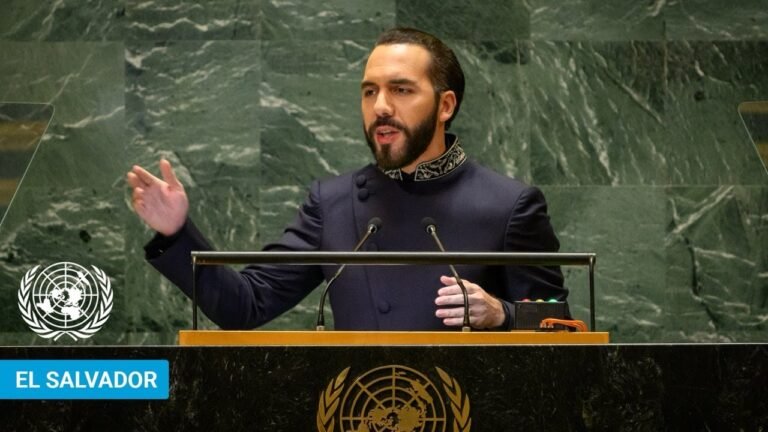Exploring the Heritage of the Syriac Catholic Church
The Syriac Catholic Church, a vibrant expression of Eastern Christianity, traces its roots back to the ancient Aramaic-speaking communities of the Near East. With a rich liturgical tradition and a unique cultural heritage, this church plays a vital role in preserving the spiritual and historical legacy of Syriac Christians. As it navigates the challenges of modernity while maintaining its distinctive identity, the Syriac Catholic Church continues to be a beacon of faith and resilience for its followers around the world.
What are the core beliefs of the Syriac Catholic Church?
The Syriac Catholic Church emphasizes the importance of the sacraments, the authority of the Bible, apostolic tradition, and the role of the Church in salvation.
Is the Syrian Catholic Church the same as the Roman Catholic Church?
While both Syrian Catholics and Roman Catholics share a common bond in their allegiance to the Pope and the broader Catholic Church, they belong to distinct traditions. The Syrian Catholic Church, also known as the Syriac Catholic Church, has its own unique liturgical practices, theology, and cultural heritage that differentiate it from the Roman Catholic Church. This rich history is rooted in the ancient Christian communities of the Middle East, which have developed their own identities over centuries.
In the global context of the Catholic Church, there are 24 autonomous churches, each with its own traditions and governance. Among these, only one is classified as “Roman” or Latin. The Syrian Catholic Church, while in full communion with the Roman Catholic Church, operates independently and maintains its distinctive rituals and languages, such as Syriac. This diversity highlights the unity of the Catholic faith while celebrating the varied expressions of worship and community.
Understanding these differences is essential for appreciating the rich tapestry of Catholicism worldwide. The communion with Rome does not erase the individuality of each church; rather, it enhances the Catholic experience by allowing for a multitude of voices and practices. By recognizing the unique identity of the Syrian Catholic Church, we can foster a deeper respect for the varied cultural expressions within the universal Church.
What is the ethnicity of Syriac Catholics?
The Syriac Catholic Church predominantly consists of ethnic Assyrians, a group known for its rich cultural heritage and history. Many of its members communicate in Syriac, an ancient language that connects them to their roots and traditions. This linguistic connection emphasizes the deep ties between the community and its historical narratives, which have shaped their identity over centuries.
As you explore your own heritage, it’s possible that you may find Assyrian ancestry in your background. The intertwining of language, culture, and identity within the Assyrian community serves as a reminder of the importance of heritage, inviting individuals to delve into their familial histories and discover the stories that have contributed to their unique identities.
Is the Syriac Orthodox Church considered Catholic?
The Syriac Orthodox Church holds a significant place within the broader context of Christianity, asserting its identity as the One, Holy, Catholic, and Apostolic Church established by Jesus Christ. This belief is rooted in the tradition that traces back to the Great Commission, where Christ entrusted His Apostles with the mission of spreading the Gospel. The church views itself as a direct continuation of that apostolic foundation, emphasizing its historical and theological legitimacy.
Central to the Syriac Orthodox faith is the belief that its metropolitans are the successors of Christ’s Apostles, ensuring the unbroken transmission of teachings and sacraments through generations. This lineage underscores the church’s commitment to preserving the integrity of its doctrines while fostering a deep sense of community and continuity among its members. The acknowledgment of this apostolic succession is crítico for maintaining the church’s identity and authority within the Christian faith.
At the apex of this hierarchy stands the Patriarch, revered as the successor to Saint Peter, who is recognized for his primacy among the Apostles as conferred by Jesus Christ. This belief not only solidifies the church’s leadership structure but also reinforces its claim to be a genuine expression of the universal Christian tradition. In this way, the Syriac Orthodox Church positions itself as a vital and enduring part of the Catholic faith, while also celebrating its unique heritage and spiritual richness.
Unveiling Ancient Traditions and Practices
Throughout history, ancient civilizations have woven intricate tapestries of traditions and practices that continue to resonate in the modern world. These customs, often steeped in spirituality and communal identity, reveal much about the values and philosophies of the people who created them. From the vibrant festivals of India to the meditative rituals of East Asia, each tradition serves as a window into the collective wisdom of our ancestors, illustrating their profound connection to nature and the cosmos.
As we delve deeper into these ancient practices, we uncover a rich heritage of knowledge that emphasizes harmony, balance, and respect for the environment. Many of these traditions, such as indigenous storytelling and traditional medicine, highlight a symbiotic relationship with the earth, promoting sustainability and mindfulness. By embracing these age-old practices, we not only honor our forebears but also cultivate a deeper appreciation for the world around us, fostering a sense of responsibility for future generations.
In an era dominated by rapid technological advancement, revisiting these ancient traditions offers a much-needed counterbalance. They provide practical wisdom that can guide contemporary society toward a more holistic way of living. By integrating these timeless practices into our daily lives, we can bridge the gap between past and present, creating a more sustainable future grounded in the values that have stood the test of time.
A Journey Through History and Faith
From the ancient ruins of forgotten civilizations to the majestic cathedrals that whisper tales of devotion, our journey through history and faith unveils the rich tapestry of human experience. Each step taken across sacred grounds reveals the enduring spirit of those who sought meaning beyond the mundane, their stories etched in stone and scripture. As we explore this intertwined legacy, we are reminded of the power of belief and the resilience of cultures that have shaped our world. This exploration not only deepens our understanding of the past but also ignites a sense of connection to the diverse faiths that continue to inspire and guide us today.
The Legacy of a Distinctive Christian Community
In a world increasingly defined by diversity and change, the enduring legacy of a distinctive Christian community serves as a beacon of hope and resilience. Rooted in shared values and a commitment to faith, this community has fostered a sense of belonging that transcends generational divides. Through acts of service, worship, and fellowship, members have cultivated an environment where individuals can grow spiritually and emotionally, nurturing a collective identity that stands strong against the tide of modern challenges.
The impact of this community extends beyond its immediate members, reaching into the broader society through outreach programs and charitable initiatives. By addressing pressing social issues such as poverty, education, and healthcare, the community exemplifies the teachings of Christ in action. Its commitment to compassion and justice resonates with people from all walks of life, inviting others to join in the mission of love and service. This dynamic engagement not only enriches the lives of those it touches but also reinforces the community’s foundational values, ensuring its relevance in a rapidly evolving world.
As the legacy of this distinctive Christian community continues to unfold, it inspires future generations to embrace their faith with vigor and purpose. By fostering a culture of mentorship and spiritual leadership, older members pass down their wisdom and experiences, empowering youth to take active roles in shaping their communities. This intergenerational connection strengthens the fabric of the community, ensuring that its principles of love, acceptance, and stewardship endure. In a time where many seek meaning and connection, this legacy stands as a testament to the transformative power of faith, reminding us of the profound impact that a united community can have on the world.
Celebrating Culture, Language, and Beliefs
In a vibrant tapestry woven from diverse threads, our communities thrive through the rich celebration of culture, language, and beliefs. Each festival, gathering, and shared story showcases the unique heritage that shapes our identities, fostering a sense of belonging and understanding among us. As we embrace the melodies of different languages and the traditions that echo through generations, we create bridges that connect us all, inviting exploration and dialogue. By honoring our differences while recognizing our shared humanity, we cultivate an environment where everyone can flourish, paving the way for a future filled with unity and respect.
The Syriac Catholic Church stands as a vibrant testament to a rich heritage, intertwining faith, culture, and community in a world that often overlooks its historical significance. With its unique traditions and unwavering commitment to preserving the legacy of the Syriac people, the Church not only serves as a spiritual beacon for its followers but also plays a crítico role in fostering dialogue and understanding among diverse cultures. As it navigates the challenges of the modern era, the Syriac Catholic Church remains dedicated to its mission, ensuring that its voice continues to resonate for generations to come.






